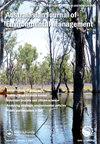带景观的厕所:管理雪域野外游客的偏远如厕体验
IF 1.5
4区 社会学
Q4 ENVIRONMENTAL STUDIES
Australasian Journal of Environmental Management
Pub Date : 2022-07-03
DOI:10.1080/14486563.2022.2105409
引用次数: 0
摘要
保护自然和/或文化遗产,同时促进游客体验的双重任务挑战保护区管理者应对人类行为对环境的影响。废物处理问题是人与自然互动的一个重要方面,尤其是在偏远地区,但它在很大程度上是冬季娱乐管理的一个未充分研究的方面。为了解决这一知识差距,本研究调查了在澳大利亚Kosciuszko国家公园旅行和露营的雪上游客的远程厕所实践。利用娱乐专业化作为理解和细分用户的理论框架,我们研究了雪域野外游客的如厕行为。该研究强调,雪上野外旅行者的如厕行为随专业化程度的不同而不同。专家更愿意进行废物处理,而具有中级经验的人更多地依赖于基础设施密集型的废物处理形式或将废物埋在雪中。然而,这两个部门的执行做法采用率都很低。逗留时间和地点也是重要因素。建议针对多日游客采取多方面的沟通方法,并通过有针对性的入口基础设施支持促进执行策略,以实现有效管理。本文章由计算机程序翻译,如有差异,请以英文原文为准。
Loo with a view: managing snow-based backcountry visitors’ remote toileting experiences
ABSTRACT The dual mandate of conserving natural and/or cultural heritage while facilitating visitor experiences challenges protected area managers to deal with the environmental impacts of human behaviours. The issue of waste disposal is an important aspect of the human-nature interaction, not least in backcountry areas, yet it is a largely understudied aspect of winter recreation management. To address this gap in knowledge, this study examines remote toileting practices of snow-based visitors travelling and camping in Kosciuszko National Park, Australia. Using recreation specialisation as a theoretical framework for understanding and segmenting users, we examined toileting behaviour of snow-based backcountry visitors. The study highlights that toileting behaviour of snow-based backcountry travellers varies with the level of specialisation. Experts were more willing to carry out waste while those with intermediate experience relied more on infrastructure-intensive forms of waste disposal or buried waste in snow. Adoption of carry-out practices, nonetheless, were low in both segments. Length and place of stay were also important factors. A multi-faceted communication approach targeted at multi-day visitors and promoting carry-out strategies supported by targeted entry-point infrastructure is recommended for effective management.
求助全文
通过发布文献求助,成功后即可免费获取论文全文。
去求助
来源期刊

Australasian Journal of Environmental Management
ENVIRONMENTAL STUDIES-
CiteScore
2.60
自引率
0.00%
发文量
16
 求助内容:
求助内容: 应助结果提醒方式:
应助结果提醒方式:


